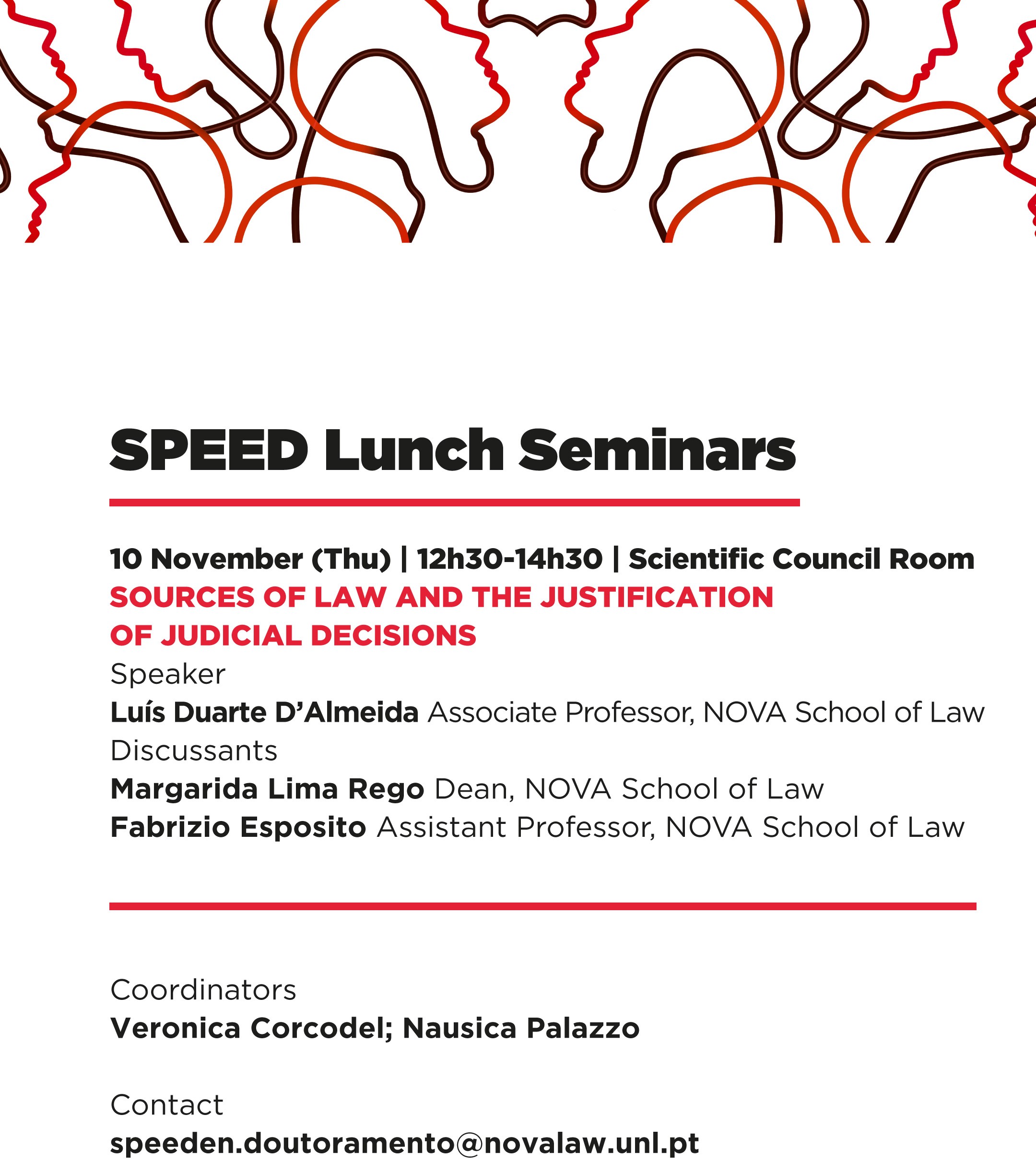
10 de novembro de 2022, das 12h30 às 14h30, sala 202 (sala do Conselho Científico)
Doutorando/a: Luís Duarte d’Almeida
Comentador/a: Margarida Lima Rego and Fabrizio Esposito
Gestão de Equipa: Nausica Palazzo and Veronica Corcodel
The first SPEED Lunch Seminar will take place on Thursday, 10 November from 12h30 to 14h30, in Room 202 (Scientific Council Room).
SPEED Lunch Seminars are a new format being introduced this year by the English SPEED Coordination. They will take place on the scheduled dates in the Scientific Council room and are an opportunity for Faculty and visiting researchers to meet up and foster a scientific community at NOVA School of Law. It is also an important moment of socialisation that allows faculty members to spend time together and discuss current and future avenues of research.
In this seminar, Professor Luís Duarte de Almeida, CEDIS’ Director and Associate Professor, will speak about “Sources of Law and the Justification of Judicial Decisions”. He will be joined by two discussants: Professor Margarida Lima Rego, Dean of the NOVA School of Law and by Professor Fabrizio Esposito, Assistant Professor at the NOVA School of Law.
Abstract
Some recent work on the concept of a source of law builds upon the distinction (first suggested by HLA Hart) between “binding” and “permissive” sources. Examples of the first include constitutions, statutes, precedent, or custom. Examples of the latter, decisions of foreign courts or legal scholarship. The distinction adopts the point of view of judicial argument and decision-making. But there is something odd about it. The law is not just something courts apply. It is also something citizens are bound to follow in their everyday lives. We should therefore be able to explain the concept of a source of law from either perspective: the citizens’ as well as the courts’. Yet permissive sources do not fit easily into any plausible account of sources of law that adopts the perspective of citizens. Or do we need to distinguish between two concepts of a source of law in order to account for how judicial argument works? This paper will discuss this problem, and eventually suggest that perhaps so-called “permissive” sources ought not to be understood as sources of law at all.


